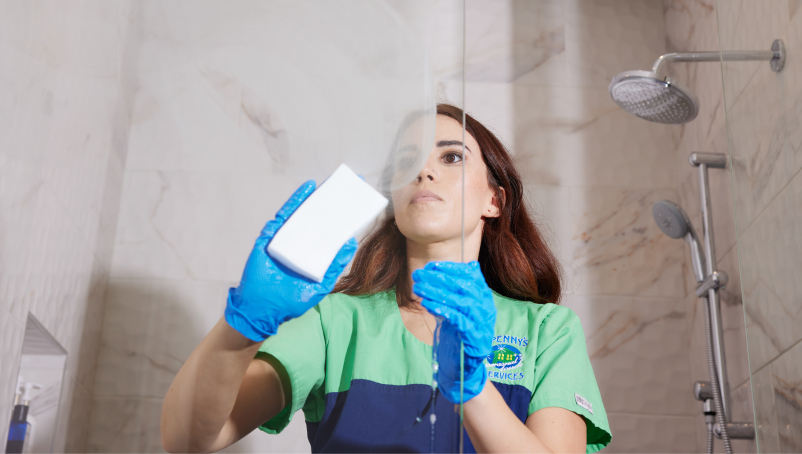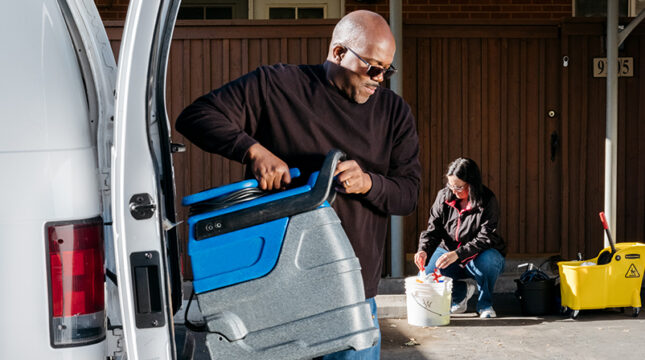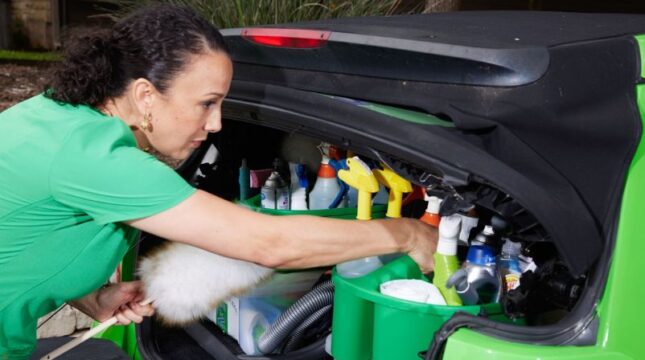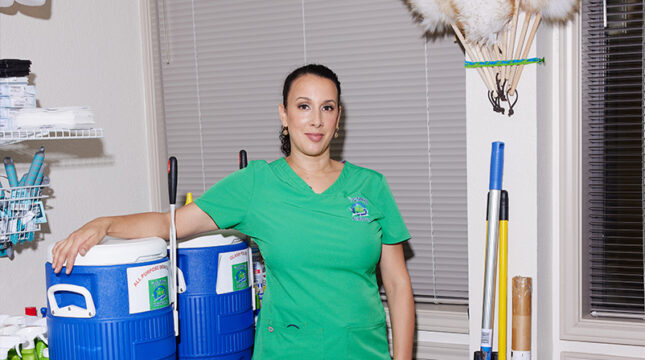How to start a cleaning business in NC
Local and state regulations related to licensing, insurance and safety standards can strongly impact your cleaning businesses. And compliance with these regulations is crucial.
Here are five steps to becoming a properly licensed cleaning business:
1. Register your new business with the state.
If you’re a sole proprietor, you needn’t register with the state. But limited liability companies (LLCs), limited partnerships (LPs) and corporations must apply for business registration with the NC Secretary of State. These are the steps for registering a cleaning business with the state:
- Decide on a business structure. You must establish the legal framework for your cleaning business, such as an LLC, sole proprietorship or corporation.
- Register your business name. Pick a unique name for your cleaning business and verify its availability. Register the name with the North Carolina Secretary of State to confirm it’s available.
- Register your business. If your cleaning business is an LLC, partnership or corporation, you must register with the North Carolina Secretary of State and pay the appropriate filing fee.
2. File a fictitious business statement
If you’re planning to operate in the cleaning industry under a different name from your legal name, you’ll need to file a form known as “doing business as” (DBA) or an assumed business name. This is required regardless of your business structure.
You should file the DBA form with the county or counties where your business operates. Please note that the cost for filing varies by county.
3. Obtain an Employer Identification Number (EIN)
Apply for an EIN on the IRS website, in person, by fax, by phone, or with the help of a third party. There’s no cost involved.
You’ll need an EIN for things like opening a bank account, getting credit cards for your business, or getting a business loan.
4. Get a business license
North Carolina issues more than 700 occupational licenses and permits at the state level. Local jurisdictions, such as cities or counties, may also have their own business license regulations and requirements.
Plus, NC has some strict regulations and permitting requirements for businesses dealing with hazardous waste. If you’re handling any medical or solid waste as part of your cleaning services, you must have the proper permits.
Consult with your area’s municipality or county governments about any additional licenses or permits needed. These could include zoning permits, signage permits and home occupancy licenses.
5. File a sales tax permit if needed
Both residential and commercial cleaning services are not subject to sales tax in North Carolina.
However, if your cleaning business sells tangible goods, such as cleaning supplies or equipment, you’ll likely need a sales tax permit from the North Carolina Department of Revenue. This permit allows you to collect and remit sales tax on your sellable items.
Insurance for starting a cleaning business in NC
You can help protect your business investment. Business insurance is usually a combination of policies tailored to help protect the health of your employees and yourself, and it can offer protection if you or someone who works for you accidentally causes damages or injury on the job.
Some of the most common types of business insurance for businesses in NC include:
General Liability insurance
General liability coverage in North Carolina can help protect against some of the most common business risks and accidents. This liability policy can help shield your business from losses associated with non-employees suffering bodily injury at your business (such as a slip-and-fall injury).
It can also be helpful if you or your employees accidentally cause property damage to someone else’s property — and you’re on the hook to repair or replace it.
Learn more about general liability for cleaning businesses.
Commercial Property insurance
Commercial property coverage can help protect the physical assets you need to do your job, such as a storefront or storage facility, plus equipment and inventory. It can help safeguard your business property against various risks, such as fire or theft.
BOP insurance (Business Owner’s Property)
A business owner’s policy, also called a BOP insurance policy, combines general liability and commercial property insurance coverage into a single, often cost-efficient and convenient package.
A BOP can carry more protection than a single policy. It can help cover damage that you or your employees may inadvertently cause to another person’s property, as well as bodily injury accidents that injure passersby on a slippery floor.
BOP keeps going to help protect your business inventory in the event of vandalism or other covered events.
Workers’ Compensation insurance
In North Carolina, workers’ comp insurance can help cover work-related injuries or illnesses. This policy can help your business cover medical expenses and wage replacement for employees who get ill or suffer an injury on the job.
Learn more about workers’ comp for cleaning businesses.
Tools & Equipment insurance
If all the cleaning supplies you bought for your work — vacuums, window washers, cleaning products, etc. — were to vanish, would you have the funds to replace them all at once?
If your owned or borrowed equipment gets stolen, lost or damaged, this coverage could help you get you back to work fast and help with replacement or repairs — in your vehicle, in storage or at a job site.
Tools and equipment coverage is an add-on to general liability insurance for contractors and cleaning businesses.
While your business may need more specialized coverage, the above policies can help protect most businesses from everyday risks — especially when you’re just starting.
North Carolina local and city cleaning business requirements
North Carolina is a highly eco-friendly area and emphasizes green cleaning. Thus, some regulations may be more strict than in other states.
City and county governments will have specific regulations you must follow. For instance, operating in a city such as Charlotte will be much different than a more rural area.
Charlotte cleaning services requirements
Are you planning to serve the Charlotte area? Visit the City of Charlotte website to learn all you need to know about starting a business there.
For example, if your cleaning business involves using chemicals or hazardous materials, you may need to comply with environmental regulations and obtain the necessary permits.
Raleigh cleaning services requirements
In Raleigh, you need to get a Business Privilege License from the City. If you plan to operate your cleaning business from home, you may need to comply with specific regulations for home-based businesses, such as a Home Occupation Permit.





